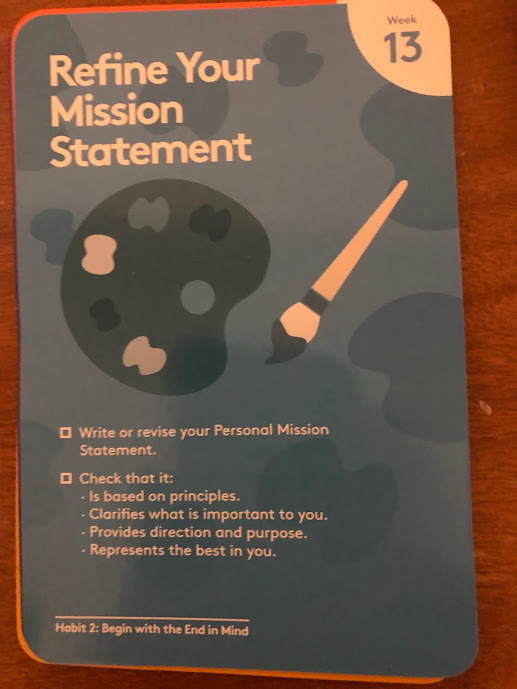Mission Statement

The "7 Habits" card that popped up today was about "Mission Statement'. WTF. This will take some thought. I generally think of "Mission Statements" as the BS that corporations put out to pad out their central "mission", which is to make a profit. But let's give it a shot. Prayer of St. Francis (perhaps his "Mission Statment") Lord, make me an instrument of Your peace; Where there is hatred, let me sow love; Where there is injury, pardon; Where there is doubt, faith; Where there is despair, hope; Where there is darkness, light; And where there is sadness, joy. O Divine Master, Grant that I may not so much seek To be consoled as to console; To be understood, as to understand; To be loved, as to love; For it is in giving that we receive, It is in pardoning that we are pardoned, And it is in dying that we are born to Eternal Life. Amen. You could think of this as a prayer or a "promise to yourself". I'm not ...









